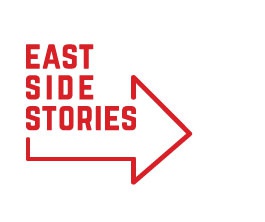![Image for [eng] Leaks: Publishing the Obvious](https://media.cafebabel.com/resized-images/02/36/cdfb6b1466f9afcb0639e1de04b79d9ce800.jpg)
[eng] Leaks: Publishing the Obvious
Published on
Translation by:
Carry Arnold[COMMENTARY] When German newspaper Süddeutsche Zeitung published its coup, it was supposed to have the same impact as Watergate but the general wave of indignation failed to occur.
When German newspaper Süddeutsche Zeitung published its coup, it was supposed to have the same impact as Watergate but the general wave of indignation failed to occur.
Every year, Germans look for their most outrageous word. A word that not only reflects the population’s mood but also replays the last few months. There was Gutmensch (“do-gooder”), Lügenpresse (“lying press”) or even alternativlos (“optionless”). Which expression might make it this year? Probably Briefkastenfirma - “letterbox company”.
When German newspaper Süddeutsche Zeitung published its coup, it was supposed to have the same impact as Watergate. One was supposed to be outraged at the scrupulousness of the powerful, to get in a lather over the audacity of the 1%. The international press was celebrating its big day: the culprits were assailed, apologies and resignations were demanded but somehow, the big outrage did not materialise for the most part. Have people become used to the commercial elite since the financial crisis?
Corrupt villains for blockbusters
Talking about the Panama Papers, the press focused on Sergei Roldugin to begin with, as the “Cellist of St Petersburg” he became the new “Tailor of Panama”. Another opportunity to draw attention to the corruption in Eastern Europe?
The word ‘corruption’ has become a synonym for the region by now and is very popular among the top 10 stereotypes. Hollywood likes to present men from the Eastern Bloc as wearing leather jackets, sun glasses and gold necklaces, a burning cigarette in the corner of their mouth and a half-empty shot glass of vodka in their hand whilst counting cash in a dark room. Naturally, this stereotype does not help anyone, except maybe the blockbusters who need a villain for their action movie.
The Eastern European watches helplessly. How can you make the world finally understand that not everyone is like that? Efforts are being made to drive democracy and European integration, to refer to oneself as a partner or a part of the European community, to stand up for an improvement of the situation and to shake the political past.
Along came the release of the Panama Papers and all the struggle over the past years was suddenly rewound. Or was it? Not in reality, as the tables soon turned. Not only the relationships of Vladimir Putin piqued public interest but so did the letterbox companies of Iceland’s Sigmundur Gunnlaugsson as well as those of British Prime Minister David Cameron.
It appears as if the world is unsure who to focus on now: Similar to a Wimbledon final, spectators turn their heads from left to right, right to left to see whose court the ball will land in.
The Panama Papers are the publication of the obvious. Everyone knows that corruption is a reality, that the financial world is missing an upholder of moral standards and that many do not want to pay taxes. In the Swiss programme Sternstunde Philosophie, Viennese philosopher Konrad Paul Liessman summarised: “He who has the opportunity to do bad, does so. Anyone who has read even a little of Nietzsche’s work cannot possibly be surprised by all this.” Be it East or West.fasste der Wiener Philosoph Konrad Paul Liessmann zusammen: „Wer die Möglichkeit hat, böse zu sein, ist es auch. Wer mal ein bisschen Nietzsche gelesen hat, kann doch von all diesen Dingen nicht überrascht sein“. Sowohl im Osten als auch im Westen.
 __
__
. | .
Dieser Artikel ist Teil unserer Spezialreihe EAST SIDE STORIES, die zu einer größeren Vielfalt an Standpunkten in den europäischen Medien beitragen soll.
Translated from Leaks: Die Veröffentlichung der Offensichtlichkeit



